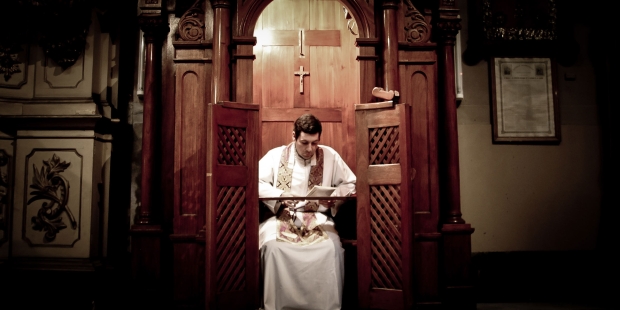Rev José Mario O Mandía
jmom.honlam.org
“Christ has entrusted the ministry of Reconciliation to his apostles, to the bishops, who are their successors, and to the priests, who are the collaborators of the bishops, all of whom thereby become instruments of the mercy and justice of God. They exercise their power of forgiving sins in the name of the Father and of the Son and of the Holy Spirit.” (CCCC 307)
It is worthwhile for priests to meditate repeatedly on the words of point 1465 of the CCC: “When he celebrates the sacrament of Penance, the priest is fulfilling the ministry of the Good Shepherd who seeks the lost sheep, of the Good Samaritan who binds up wounds, of the Father who awaits the prodigal son and welcomes him on his return, and of the just and impartial judge whose judgment is both just and merciful. The priest is the sign and the instrument of God’s merciful love for the sinner.”
Priests are stewards of an immense power – that of restoring supernatural life. This is why the CCC says that they “must encourage the faithful to come to the sacrament of Penance and must make themselves available to celebrate this sacrament each time Christians reasonably ask for it” (CCC 1464).
WHAT MAKES A GOOD CONFESSOR?
Point 1466 of the CCC describes the traits that should mark a confessor.
“The confessor is not the master of God’s forgiveness, but its servant. The minister of this sacrament should unite himself to the intention and charity of Christ (Presbyterorum Ordinis 13). He should have a proven knowledge of Christian behavior, experience of human affairs, respect and sensitivity toward the one who has fallen; he must love the truth, be faithful to the Magisterium of the Church, and lead the penitent with patience toward healing and full maturity. He must pray and do penance for his penitent, entrusting him to the Lord’s mercy.”
The Congregation for the Clergy has released a document for confessors that is worth reading–The Priest, Minister of Divine Mercy. Pope Francis has also given some recommendations in his book The Name of God is Mercy.
THE WORLD’S MOST CLOSELY-GUARDED SECRET
“Given the delicacy and greatness of this ministry and the respect due to persons, the Church declares that every priest who hears confessions is bound under very severe penalties to keep absolute secrecy regarding the sins that his penitents have confessed to him. He can make no use of knowledge that confession gives him about penitents’ lives (cf Code of Canon Law, can. 1388 # 1; Code of Canons of the Oriental Churches, can. 1456). This secret, which admits of no exceptions, is called the ‘sacramental seal,’ because what the penitent has made known to the priest remains ‘sealed’ by the sacrament” (CCC 1467)
If a confessor reveals what a penitent has told him in confession, he violates the secret of confession and incurs the excommunication latae sententiae (automatic excommunication) which only the Holy Father can lift.
THE CONFESSIONAL
Canon 964 of the Code of Canon Law specifies the place for confession.
“Section 1. The proper place to hear sacramental confessions is a church or oratory.
“Section 2. The conference of bishops is to establish norms regarding the confessional; it is to take care, however, that there are always confessionals with a fixed grate between the penitent and the confessor in an open place so that the faithful who wish to can use them freely.
“Section 3. Confessions are not to be heard outside a confessional without a just cause.”
The confessional protects the privacy of the penitent – it is their right. Moreover, it is also good for the confessor, particularly when he hears the confessions of women.


 Follow
Follow


